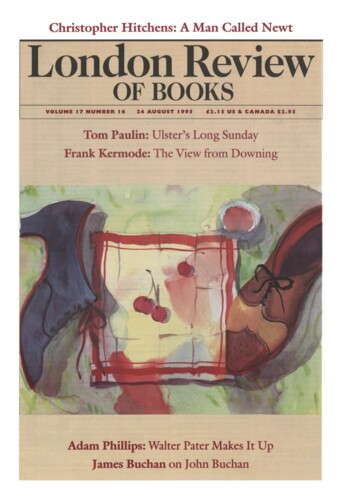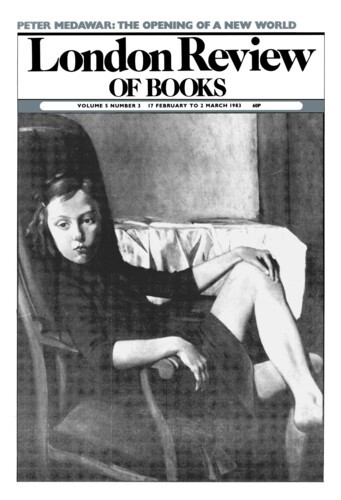Whose war is it anyway?
David Daiches, 24 August 1995
In 1934 I came to Oxford from Edinburgh, where I had obtained my first degree. I found the place to be full of left-wing political feeling. The rise of Hitler had provoked many hitherto non-political young people to agitated concern about the future of Europe. The developing policy of appeasement; the ‘non-intervention’ policy of the British and French governments with respect to the Franco rebellion in Spain; the helpless feeling that the humane liberal traditions in which so many of us had been brought up were dangerously threatened: all of this had us seriously worried. It led many to believe that the only hope for Europe lay in the idea of a popular front in which all anti-Fascist forces would join with Soviet Russia to fight this evil. The Oxford Labour Club, to which I and all my friends in Oxford belonged, contained many members of the Communist Party who had joined because they believed Soviet Russia to be the only country that could be relied on to resist Fascism. Most of us at that time took a rosy view of the USSR and had no awareness of the cruelties of Stalinism. We eagerly read the publications of Gollancz’s Left Book Club and felt guilty at not going out to fight on the Republican side in Spain.


